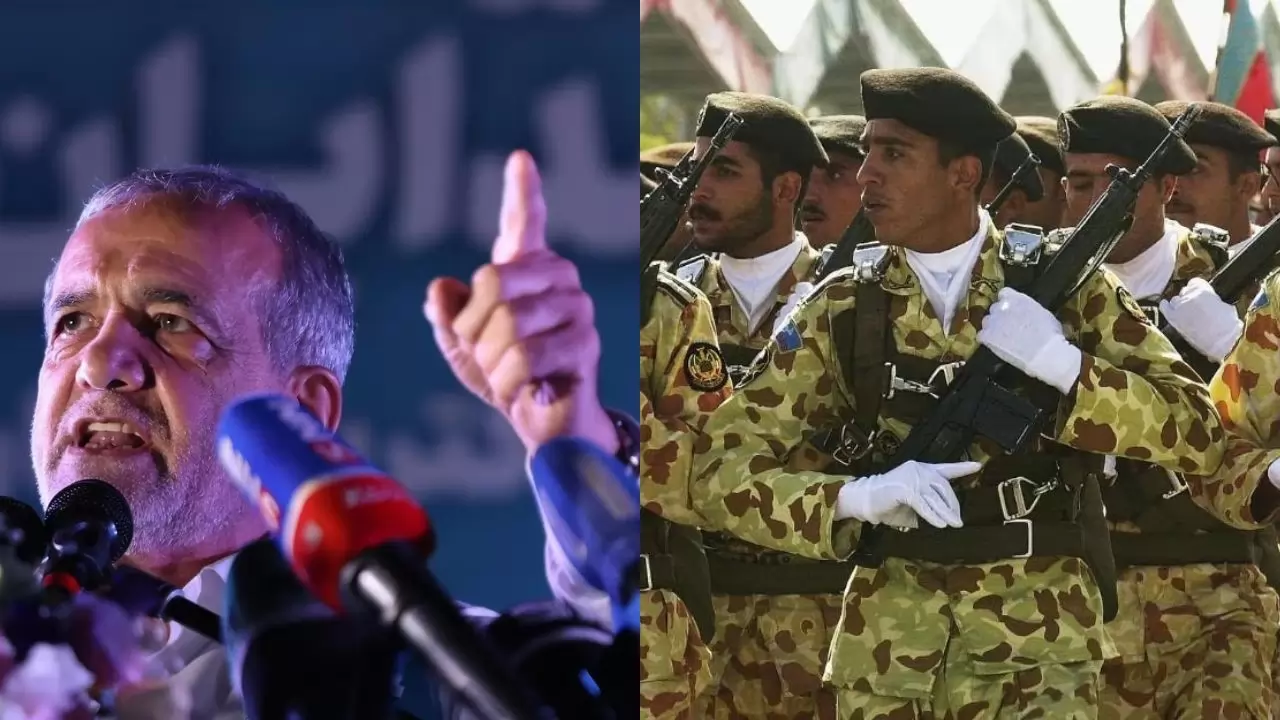
The Iranian government is at odds over how to retaliate against Israel following the killing of Haniyeh. (X)
New Delhi: Iran's newly elected President Masoud Pezeshkian is facing a significant challenge early in his tenure as he clashes with hardliners within the powerful Islamic Revolutionary Guard Corps (IRGC) over how to respond to the recent assassination of Hamas leader Ismail Haniyeh in Tehran.
The IRGC, known for its hardline stance, is advocating for a direct and severe missile strike on Tel Aviv and other major Israeli cities. This approach, they argue, would send a strong message to Israel and reassert Iran's position in the region.
Pezeshkian Advocates for a Calculated Response
In contrast, President Pezeshkian, who won his election against a candidate backed by the IRGC, is urging for a more measured approach. He proposes targeting alleged Mossad bases outside of Israel, particularly in neighboring regions like the Republic of Azerbaijan and Iraqi Kurdistan. Pezeshkian believes this strategy would minimize the risk of escalating into a full-scale war, which he fears could have devastating consequences for Iran.
Internal Struggles for Power
Pezeshkian's stance has led to a growing conflict within Iran's leadership, with the IRGC reportedly undermining his efforts to avoid a major confrontation with Israel. The IRGC's push for a more aggressive response is seen by some within the government as an attempt to challenge Pezeshkian's authority just days into his presidency.
An aide close to Pezeshkian revealed, "Pezeshkian fears that any direct attack on Israel would have serious consequences." Meanwhile, an IRGC official emphasized their commitment to a strong retaliation, stating, "The number one consideration is still striking Tel Aviv with Hezbollah and others at the same time."
As tensions rise, President Pezeshkian's ability to assert his authority over the IRGC will be crucial in determining Iran's next steps. The outcome of this internal power struggle could have far-reaching implications for regional stability and Iran's future relations with Israel.





Copyright © 2026 Top Indian News
